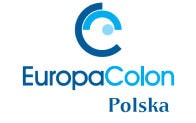Study to Evaluate Oxygen Monitoring at Different Stages of Neuromuscular Blockade in Colorectal Surgery
NCT02327494
Observational [Patient Registry]
Unknown status
OXYMUBLOC
Anesthesia favouring deep/intense neuromuscular blockade during laparoscopy may restore hemodynamics. However, no studies has been performed comparing oxygenation parameters during laparoscopy in colorectal surgery in either moderate or intense neuromuscular blockade. The investigators aim to investigate whether the intense neuromuscular blockade produces a better oxygenation profile measured by the central venous oxygen saturation than the moderate neuromuscular blockade. This is a one centre, prospective clinical trial to compare oxygenation data at different stages of neuromuscular blockade in high-risk patients scheduled for colorectal surgery. Data recording will be blinded to the anesthesiologist in charge of the patient, who will manage patients by a determined protocol, based on stroke volume data to direct fluidotherapy. Data analyzer will be not be involved in the study design or in writing reports from the study. Inclusion criteria: Be a candidate to a colorectal surgical resection procedure and one of these conditions: ≥ 70 y.o, or respiratory co-morbidity, or cardiac co-morbidity or haemoglobin level < 11g/dl. The primary outcome is the absolute number of the central venous oxygen saturation, measured at the following points: basal, after tracheal intubation, before pneumoperitoneum or abdominal incision, after pneumoperitoneum or abdominal incision, 5 and 10 minutes before administration of rocuronio to produce intense blockade, continuously during profound neuromuscular blockade until the end of surgery, before sugammadex administration, after sugammadex administration, after tracheal extubation, for the 24 hours post surgical. Data of the regional cerebral oxygen saturation will be measured at the same points. The investigators hypothesize that oxygenation data will be favourable by applying the intense neuromuscular blockade in comparison with moderate neuromuscular blockade. Also, the investigators hypothesize that oxygenation data obtained during the whole procedure including the first 24-hours post-surgery, measured by the regional cerebral oxygen saturation are comparable to data obtained by the central venous oxygen saturation. The investigators want to obtain information about influence in the outcome of producing profound neuromuscular blockade during laparoscopy colorectal by comparison of outcome data with matched historical control.
Jan 31,2015
All
18 Years
N/A
18 Years
N/A
70

